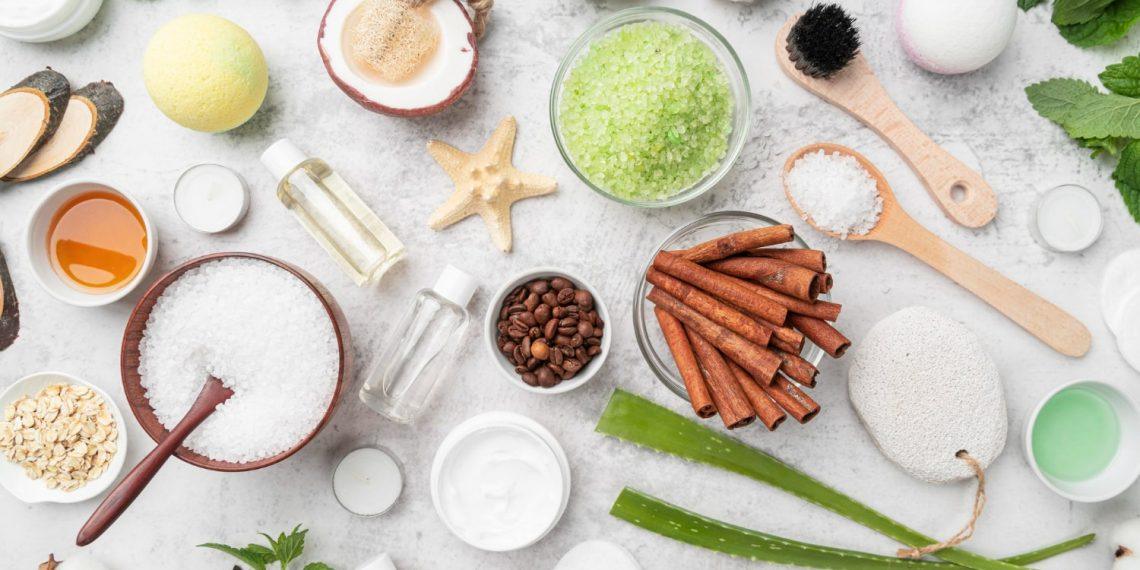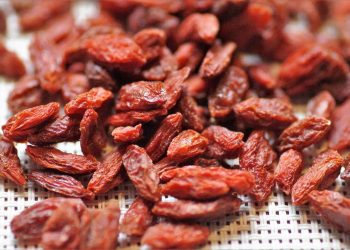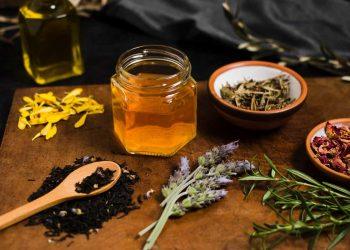Vision herbal teas are gentle, plant-based blends designed to support your eyes, reduce fatigue, and feed the tissues that let you see the world clearly. They matter because your eyes don’t get a day off—screens, stress, and aging take their toll. If you want practical, safe ways to protect your sight without gimmicks, this is for you.
I’ll be honest: I don’t promise miracle cures. What I promise is smart, tender care that works alongside good medical advice. You’ll find science, sensible recipes, and real-life tips so you can put nourishing rituals into your life starting today.
Contents
- Why Vision Herbal Teas Deserve A Place On Your Shelf
- How To Choose The Right Vision Herbal Teas
- 1. They Fight Oxidative Stress With Antioxidants
- 2. They Reduce Inflammation That Harms Vision
- 3. They Improve Microcirculation To The Eye
- 4. They Support Night Vision And Contrast Sensitivity
- 5. They Calm Dry Eyes And Irritated Surfaces
- 6. They Help Manage Eye Strain From Screens
- 7. They Offer Ritual And Stress Reduction For Better Vision
- Bottom Line
- FAQ
Why Vision Herbal Teas Deserve A Place On Your Shelf
When you sip a cup, you’re doing more than hydrating. A well-crafted cup delivers antioxidants, anti-inflammatories, and micro-nutrients directly to your system. That helps your eyes fight oxidative stress and keeps circulation humming where it counts.
Researchers studying botanicals often point to compounds like lutein, zeaxanthin, flavonoids, and anthocyanins as eye-friendly powerhouses. You’ll find many of those in traditional herbs used for eye health. Drinking herbal tea is a gentle, consistent way to top up those benefits.
How To Choose The Right Vision Herbal Teas
Not every pretty tin is equal. Look for blends that include herbs with known ocular benefits—like bilberry, eyebright, chamomile, ginkgo, and green tea. Quality matters: organic, pesticide-free herbs are preferable, and loose leaf often beats dusty bags for potency.
Ask yourself what you need. Anti-inflammatory relief? A boost for night vision? Reduced eye strain? Choose blends intentionally and rotate them so you don’t rely on a single herb forever. Always check interactions with meds—some herbs affect blood thinners and other prescriptions.
1. They Fight Oxidative Stress With Antioxidants
Oxidative stress damages the retina and contributes to age-related macular degeneration. You can slow that process. Vision herbal teas rich in antioxidants—like green tea, bilberry, and rooibos—deliver catechins and polyphenols that neutralize free radicals.
Clinical studies on green tea polyphenols show reduced oxidative markers in ocular tissues, and bilberry has been researched for its protective retinal effects. Sip these teas regularly and you’re giving your eyes daily antioxidant shield work they can’t do alone.
2. They Reduce Inflammation That Harms Vision
Inflammation makes everything worse. Chronic, low-level inflammation affects the delicate structures of the eye and speeds degeneration. Herbs like chamomile, licorice root, and ginger have natural anti-inflammatory actions that calm the system without harsh drugs.
Enjoying a soothing cup of chamomile or ginger tea after a long day of screen time can reduce ocular surface inflammation. That simple ritual helps your body switch from fight-or-flight to repair mode—exactly what tired eyes need.
3. They Improve Microcirculation To The Eye
Blood flow matters. Your optic nerve and retina need steady oxygen and nutrients. Herbs such as ginkgo and hawthorn support microcirculation and help deliver those essentials. Better flow means less strain and clearer functioning.
Ginkgo has been studied for improving ocular blood flow, especially in people with vascular issues. When circulation improves, your eyes receive better nourishment and waste removal. Consider a ginkgo blend if dryness and sluggish recovery from eye strain are your complaints.
4. They Support Night Vision And Contrast Sensitivity
Some herbs directly target the pigments and cells involved in low-light vision. Bilberry, a classic in ophthalmic herbalism, contains anthocyanins linked to improved night vision and contrast sensitivity in clinical observations.
Adding bilberry to a nightly cup or rotating it into a weekly ritual can support your visual performance. Professional studies and anecdotal reports both point to better adaptation to dark conditions after regular bilberry use.
5. They Calm Dry Eyes And Irritated Surfaces
Dry eyes are a modern epidemic. Tea blends with anti-inflammatory and mucilage-rich herbs—like marshmallow root or eyebright—can soothe eyelid margins and ocular surfaces from the inside out. Hydration plus herbal soothing is a powerful combo.
Eyebright has a long folk history for soothing irritated eyes and contemporary herbalists still use it for mild irritation. Use it as a warm infusion and sip gently, not as a substitute for prescribed drops when you need them.
6. They Help Manage Eye Strain From Screens
Staring at bright displays tightens your muscles and fries your focus. Herbs that support neural recovery and reduce fatigue—like green tea for its moderate caffeine and L-theanine, or rosemary for circulation—can make a difference.
A midday cup of a thoughtfully blended tea can sharpen focus without the jitter of coffee. Combine short screen breaks with 20–second eye exercises and a calming cup, and your eyes will thank you for the reset.
7. They Offer Ritual And Stress Reduction For Better Vision
There’s a practical psychological benefit here: taking time to care for your eyes reduces cortisol and improves sleep—both of which matter to long-term ocular health. Rituals anchor behavior and make consistency easy.
Make a nightly tea ritual part of your eye-care protocol. The calm, the warmth, and the act of slowing down reduce systemic stress. Over time, that reduced wear-and-tear shows up in clearer vision and less eye discomfort.
Simple Blend Recipes To Try
Here are three no-fail blends you can make at home. Use organic, whole herbs, steep 5–10 minutes, and drink warm.
- Gentle Daily Shield: green tea, bilberry, and a pinch of rosemary. Antioxidant and focus-friendly.
- Soothing Eye Ease: chamomile, eyebright, and marshmallow root. Anti-inflammatory and hydrating.
- Circulation Boost: ginkgo, hawthorn, and ginger. Warming and supportive for microcirculation.
Rotate these weekly. Variety gives broader phytochemical exposure and reduces risk of overuse reactions. If you take medication, mention herbs to your clinician—some blends can interact with blood thinners or blood pressure meds.
How To Brew For Maximum Benefit
Use fresh water just below boiling for green tea; full boil is fine for roots and barks. Steep 5–10 minutes for leaves, 10–15 for roots and berries. Cover the cup while steeping to trap volatile oils. Drink two to three cups a day as a steady, supportive habit.
Don’t sweeten heavily—honey is fine in small amounts. If you’re pregnant, nursing, or on medication, talk to your clinician before starting herbal regimens.
Safety, Interactions, And When To See A Professional
Herbs are powerful. That’s their beauty and their responsibility. If you have glaucoma, severe dry eye, or sudden changes in vision, see a specialist right away. Herbal teas are supportive, not a replacement for medical treatment.
Keep these rules in mind: speak with your doctor if you take blood thinners, manage diabetes, or have cardiovascular conditions. Stop any herb that causes allergic reactions or unusual symptoms. Use reputable sources for herbs to avoid contaminants.
Bottom Line
Vision herbal teas are a thoughtful, evidence-informed tool to support eye health. They bring antioxidants, anti-inflammatories, improved circulation, and restorative ritual into simple daily practice. When chosen wisely and used alongside professional care, these blends can ease strain, soothe irritation, and help preserve vision into the years ahead.
Start with one cup a day, pick a quality blend, and treat it like the gentle, daily appointment your eyes deserve. Your eyes give you access to the details of life—give them a little return.
Encouraging words: Take the first sip with intention. You’re investing in the small, steady things that protect your sight.
FAQ
Are vision herbal teas safe for daily use?
Generally yes, when you choose high-quality herbs and stay within recommended amounts. Use moderation and check interactions with any medications. If you have chronic conditions or are pregnant, consult your healthcare provider first.
Can these teas cure eye diseases like macular degeneration?
No. These teas support eye health and may slow some processes, but they are not cures. For diagnosed conditions, follow your ophthalmologist’s treatment plan and use teas as complementary care.
How long before I notice benefits?
You may feel reduced eye strain within days to weeks. Structural changes and protective effects develop over months of consistent use. Think maintenance, not instant fixes.
Which herbs are best for dry eyes?
Herbs with soothing, anti-inflammatory, and mucilaginous properties like eyebright, chamomile, and marshmallow root are helpful. Hydration and prescription treatments should not be replaced if needed.
Can children drink vision herbal teas?
Use caution. Some herbs aren’t suitable for children. Consult a pediatrician before offering herbal teas to kids.
References
National Institutes of Health provides information on dietary supplements and eye health (http://www.nih.gov).
Harvard Medical School discusses antioxidants and eye disease prevention (http://www.health.harvard.edu).
The American Academy of Ophthalmology offers guidance on nutrition and vitamins for eye health (http://www.aao.org).
University of Minnesota Extension reports on herbal remedies and safe use during pregnancy and medication interactions (http://extension.umn.edu).
PubMed Central hosts peer-reviewed research on ginkgo and ocular blood flow (http://www.ncbi.nlm.nih.gov/pmc).
Get Your FREE Natural Health Guide!
Subscribe now and receive our exclusive ebook packed with natural health tips, practical wellness advice, and easy lifestyle changes — delivered straight to your inbox.















